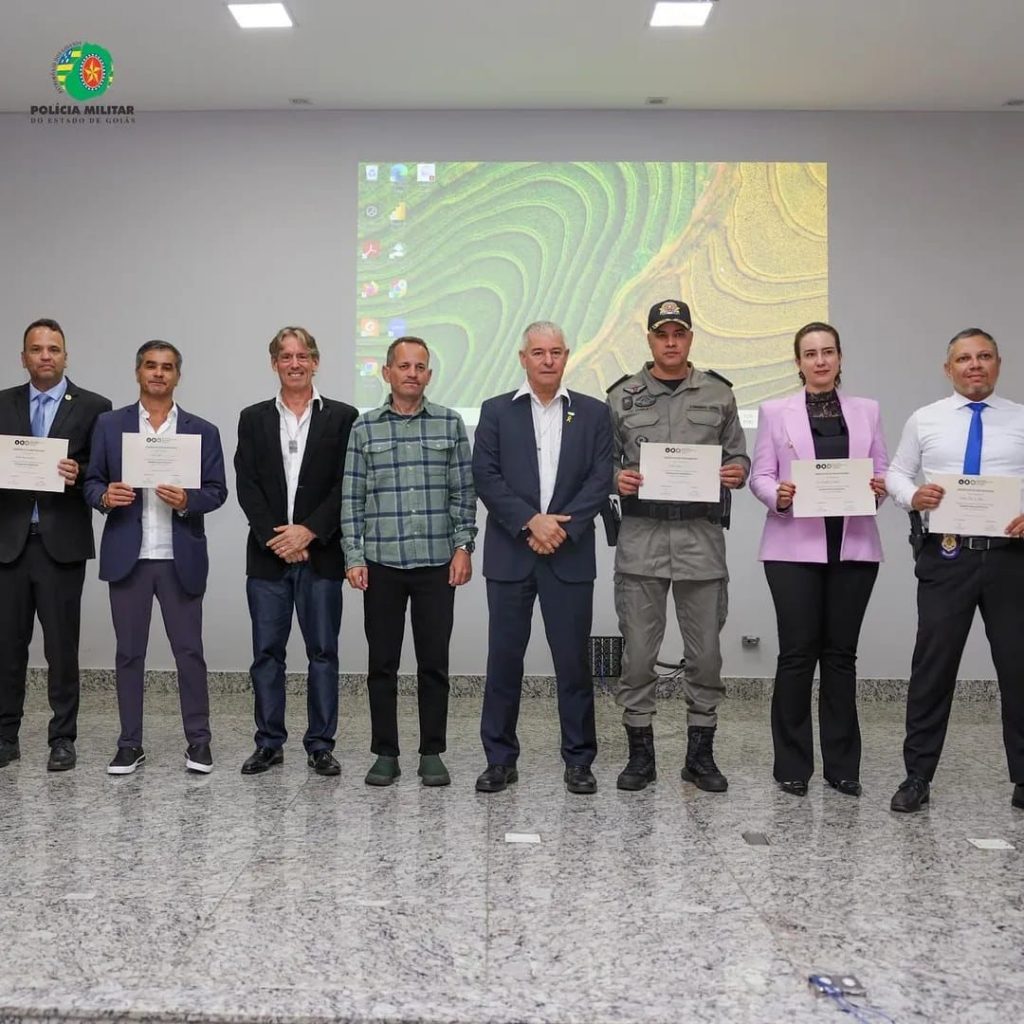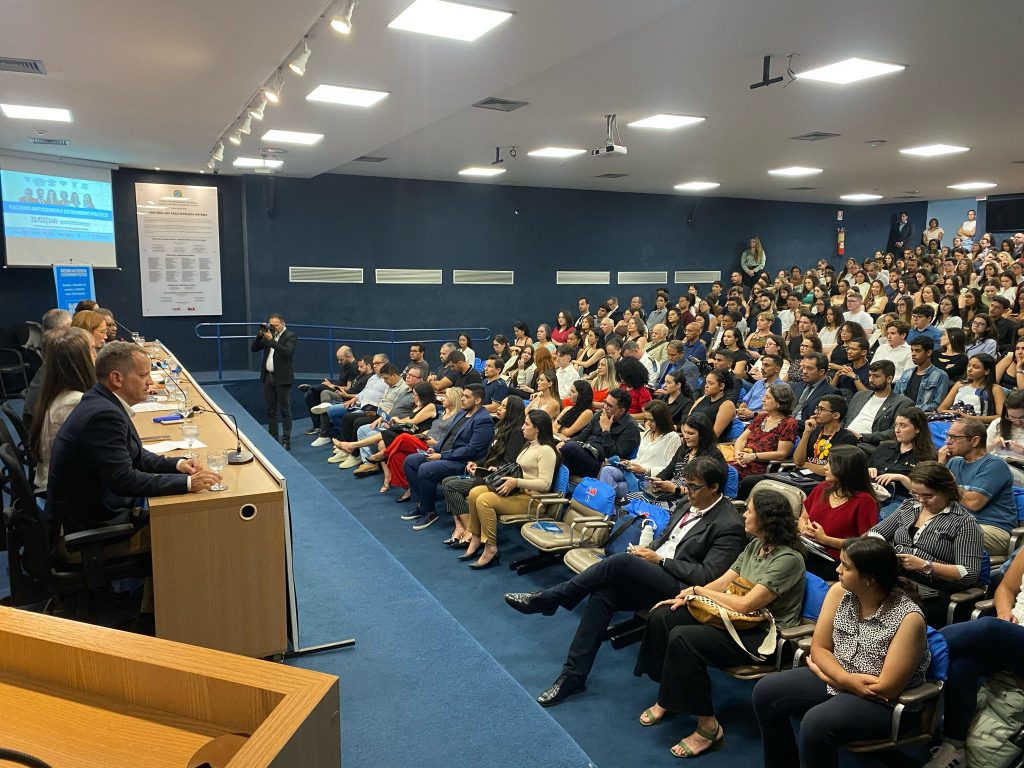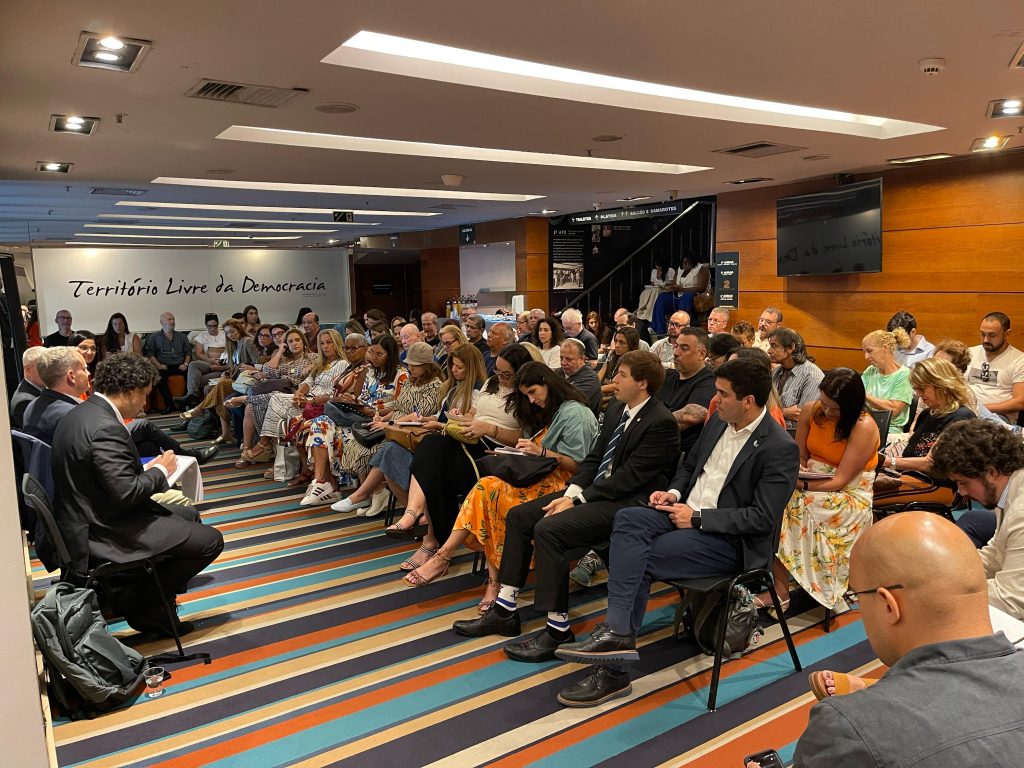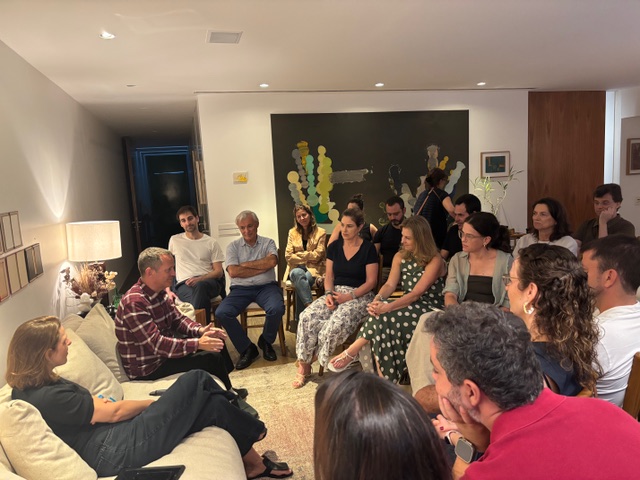Cotler Institute Workshops in Brazil

From March 9 to 16, Brazil played host to a series of workshops and public events led by the Head of the Irwin Cotler Institute for Democracy, Human Rights and Justice, Prof. Uriya Shavit. The workshops and events aimed to enhance understanding of antisemitism and the means to combat it effectively. Covering four key regions—Rio de Janeiro, Brasília, Goiás, and São Paulo—the initiative drew significant participation from judges, lawyers, police officers, security personnel, educators, law students, government representatives, diplomats and journalists, and was widely covered in the local media. Attendees were awarded the institute’s certificates of participation. Many shared their gratitude for the clarity and depth of the informative lectures and expressed their desire to visit Israel, and TAU’s campus, in the near future.
The visit was part of a broader effort to implement the IHRA definition, which has been adopted by 12 out of the 26 Brazilian federal states as of February 2024.
Prof. Shavit remarked: “The idea was to illustrate the historical mutations of anti-Jewish prejudice, and to clarify the difference between harsh criticism of Israel and antisemitism. I was pleased to meet the most gracious of hosts and to speak to attentive professionals that appear to have zero tolerance to any form of racism.”
The visit was initiated by Ruth Cohen-Dar, Head of the Department for Combatting Antisemitism and Holocaust Remembrance at the Israeli Foreign Office and superbly organized by Ambassador Daniel Zonshine, Deputy Ambassador Yonatan Gonen, Israel Consul in São Paulo Gili Vilian, Israel Consul in Brasilia Dror Yair, and Diplomatic Advisor Mireia Maia.
Igor Maier Pereira, Irwin Cotler Fellow for 2024-2025 and a native of Brazil, assisted in the preparation of the Portuguese-language version of the Quiz.
The first public event was held in Rio de Janeiro on March 9, and catered to education officials, teachers, and lecturers, with around 100 in attendance. Organized in collaboration with the education ministries of the Rio de Janeiro state government, the Rio de Janeiro municipality, and the judiciary, the session was also attended by representatives of Jewish organizations such as B’nai B’rith and the Holocaust Museum. Participants actively engaged in discussions, sharing their experiences as teachers and seeking guidance on identifying antisemitic incidents. Some noted that the session was timely, given the rising cases of hate crimes.
The same day, a workshop for more than one hundred members of the Civil Police, including high-ranking officials such as the head of the Civil Police and the chief of joint forces, was held. The senior officials underscored the importance of training security personnel in tackling antisemitic crimes, and highlighted that Rio de Janeiro was the first Brazilian city to adopt the IHRA definition. Officers from units tasked with investigating racially motivated crimes found the workshop particularly relevant and expressed interest in further training sessions.
After Rio, Prof. Shavit traveled to Brasília,the nation’s capital. There, Prof. Shavit led a workshop at an event hosted by the Brazilian Bar Association (OAB). Attended by more than 300, the audience comprised a diverse group of professionals, including members and representatives of counter-terrorism police units, racially-motivated crimes investigation units, human rights organizations, prosecutors, lawyers, law students, vice-rectors from leading Brazilian universities, the Brazilian Bar Association’s president and the education director of Brazil’s Ministry of Defense. Significantly, following the session, the district prosecutor’s office and the OAB decided to include a Jewish community representative in a working group focused on hate speech, an important step toward stronger legal and educational efforts against antisemitism.
The next stop was Goiás, the first Brazilian federal state to adopt the IHRA definition. The workshop led by Prof. Shavit there brought together judges, prosecutors, and high-ranking state government and security officials, including the state’s Deputy Governor and Minister of Public Security. Attended by approximately 100 participants, it focused on reinforcing the state of Goiás’s commitment to combating hate crimes and all forms of racism and discrimination.
After Goiás, Prof. Shavit travelled to São Paulo, where two key public events were held. The first, at the UNIBES Cultural Center in collaboration with StandWithUs, provided a platform for open dialogue between Prof. Shavit and attendees, who included academics, Jewish community members, and journalists. The interactive nature of the discussion was widely appreciated, fostering deeper understanding of antisemitism in contemporary society.
The second session, at Ibemc University in collaboration with StandWithUs, attracted municipal advisors, public figures, business leaders, and students of international relations. Officials from São Paulo’s Department of International Relations expressed their intention to integrate insights from the workshop into policy frameworks.
The evening before returning, Prof. Shavit was graciously hosted in the home of Marina Terepins and Mauricio Hazan for an event organized by Eduardo Wurzmann, the former president of the Brazilian Friends of Tel Aviv University and a member of TAU’s Board of Governors and Betina Hakim, the Executive Director of the Brazilian Friends of Tel Aviv University. There, Prof. Shavit discussed topics related to the origins of the Israeli-Palestinian conflict with more than 40 guests from various professional backgrounds, including law, medicine, and the arts.
Major Brazilian outlets, including Globo, covered the events in São Paulo, bringing national visibility to the initiative. The Government of Goiás published an official statement highlighting the importance of the workshops, and CONIB, Brazil’s Jewish community umbrella organization, provided extensive coverage of the Brasília event. Additionally, the Military Police of Goiás and the Federal District Bar Association shared details of the sessions on their official platforms.



